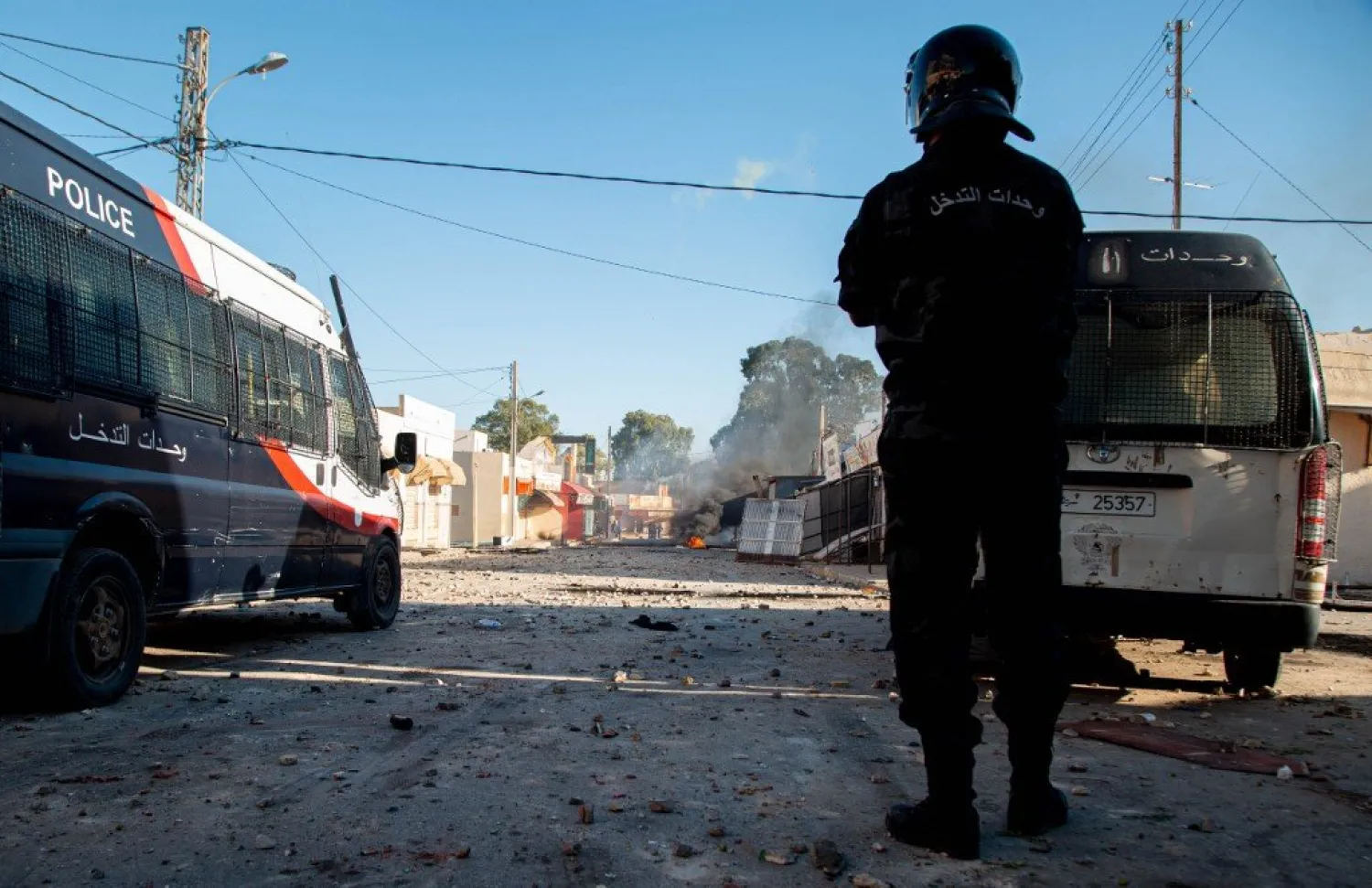Hundreds of protesters clashed with the security forces in Sbeitla, in central Tunisia, over the death of a local merchant during the demolition of his store, and local authorities requested military reinforcements to protect public and vital institutions fearing an escalation.
In response, Prime Minister Hichem Mechichi dismissed the governor of Kasserine, where Sbeitla is located, and three local security officials in an effort to defuse local anger.
Spokesman for the Court of First Instance, Riadh Nouioui, confirmed that the public prosecution ordered an investigation into the death of Abderrazek Khachnaoui, 50, who died when his kiosk was demolished while sleeping in it.
Nouioui announced that a forensic team will examine the victim’s body to determine the circumstances of the accident, and the prosecution will interrogate all involved parties. He asserted that all those involved in the accident will be prosecuted.
The Minister of State for Local Affairs, Chokri ben Hassen, visited Sbeitla to support the family of the deceased.
Media reports stated that protesters set fire to tires and blocked several roads upon the death of Khachnaoui, and some burned government vehicles.
Security forces used teargas canisters to disperse the angry protesters with the military deployed to protect government facilities in the city.
Observers believe that the social and security incidents in Sbeitla are similar to those that followed the death of Mohamed Bouazizi, who set himself on fire to protest police harassment in 2010 leading to the protests that toppled the Tunisian regime in 2011.
Meanwhile, the Tunisian parliament postponed, upon the government's request, discussing a controversial bill on the protection of security forces who use excessive force.
The parliament confirmed, in a statement issued Tuesday, it agreed to the government's request to "postpone consideration" of the draft bill, without specifying the reasons for the delay.
The decision came in response to the protests of Tunisian youth and non-governmental organizations rejecting the bill which would strengthen the "immunity" of the police. However, police unions have been campaigning for this law saying it protects security forces from extremists' attacks.
Young Tunisians demonstrated in front of parliament last week against the “return of a police regime,” and non-governmental organizations denounced the bill that would grant “protection” to security forces.









